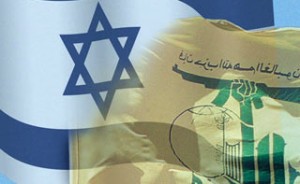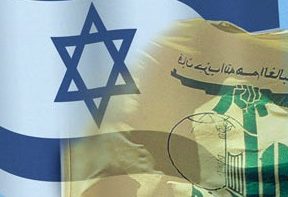 A Hezbollah attack along Israel’s border with Lebanon on Tuesday wounded two Israeli soldiers, raising concerns about growing destabilization along Israel’s restless northern frontier.
A Hezbollah attack along Israel’s border with Lebanon on Tuesday wounded two Israeli soldiers, raising concerns about growing destabilization along Israel’s restless northern frontier.
Israel’s military said the soldiers patrolling the Shebaa Farms region were injured by an explosive device planted along the border by Hezbollah.
On Sunday, soldiers fired on at least two people who had crossed the border from Lebanon. On Tuesday, the army said it believed that incident was linked to an effort by Hezbollah to target Israel in the border region.
A statement by the Hezbollah-controlled Al Manar news agency claimed responsibility for Tuesday’s attack, which came on the 14-year anniversary of the Iranian-backed, Shiite group’s kidnapping of three Israeli soldiers in the same region.
Israel responded Tuesday with artillery fire across the border and with intelligence flights over Lebanon, the Lebanese Ministry of Information said.
Though the Israel-Lebanon border region has been relatively quiet since Israel and Hezbollah fought a 34-day war in 2006, Hezbollah this year resumed occasional attacks in border areas from both Lebanon and Syria.
The hostilities come as Israel has been grappling with intensified fighting along its border with Syria in the Golan Heights, as rebel groups led by the al Qaeda-linked Nusra Front gained control of most of the Syrian side of the frontier.
A spokesman for the Israeli military said the attacks were seen as an effort by Hezbollah to improve its domestic standing in Lebanon rather than to spark a wider conflict with Israel.
The group is considered in Israel to be too busy fighting on behalf of Syrian President Bashar al-Assad to want a war with Israel. That said, the Israeli military said the attacks have raised the risk of an escalation.
“The attack took effort, energy and planning. They are playing a dangerous game with negative impact on the stability of the region by carrying out these attacks,’’ said Lt. Col. Peter Lerner, an Israeli military spokesman.
Israeli experts on Syria, however, offered a different explanation for the attacks than the army. They said that Hezbollah resumed attacks on the border in retaliation for strikes it accuses Israel of committing inside Lebanon.
In February Hezbollah accused Israel of striking a Hezbollah position near the border with Syria. And about two weeks ago, Hezbollah said one of its operatives was killed by a booby-trapped Israeli monitoring device in Lebanon.
Al Manar news agency said the unit that carried out the attack on Tuesday was named for the Hezbollah operative killed in that explosion.
Israeli security authorities are eager to avoid an escalation with Hezbollah, which experts predict would be several times more destructive than the 50-day battle with Hamas in the Gaza Strip this past summer.
Speaking to his cabinet, Prime Minister Benjamin Netanyahu praised Israeli forces for preventing a more serious attack, but stopped short of mentioning Hezbollah.
Israel has mainly been focused on the fighting in southern Syria and the spillover into the Golan Heights, which was its quietest border until 2011.
The Nusra Front rebel group has ousted Syrian forces from the Queneitra border crossing between Israel and Syria and held United Nations peacekeepers captive—prompting the buffer force to pull most of its troops out of Syria.
Along with errant mortar fire into the Golan Heights, in recent months Israel has shot down an aerial drone and a Syrian combat jet that it said had crossed into its airspace.
Eyal Zisser, a political-science professor at Tel Aviv University who is an expert on Syria, said that the understanding that prevailed between Israel and Hezbollah for eight years to keep the Lebanese border area quiet has been eroded.
“Hezbollah said clearly that we can’t allow ourselves not to respond. If we don’t respond, Israel will be view us as weak. We need to draw a clear line,’’ he said.
“Nobody has an interest in getting embroiled in a new war,” he added. “But everyone is careful to draw the lines, and the danger is a miscalculation.”
WSJ


Leave a Reply
You must be logged in to post a comment.